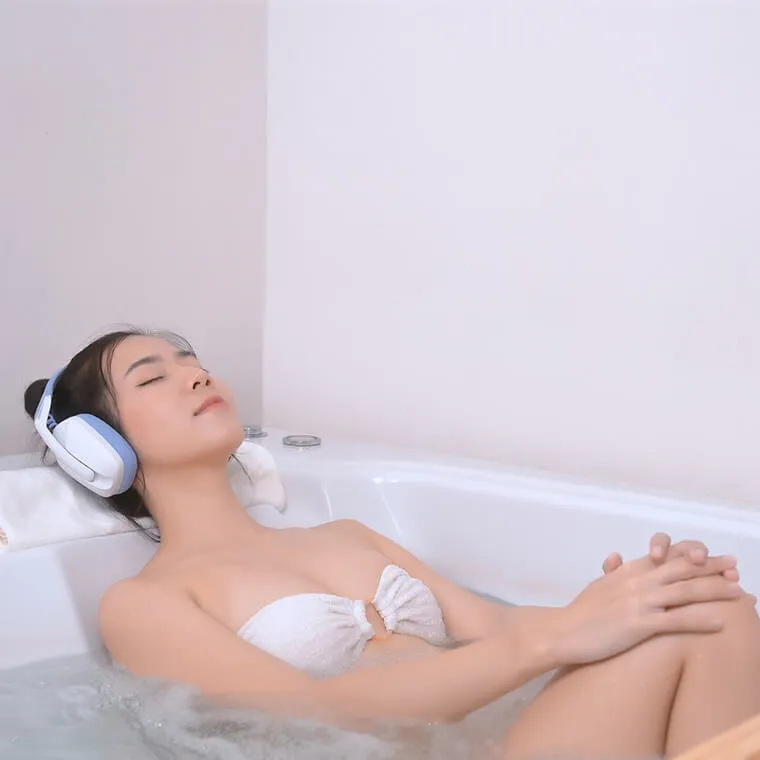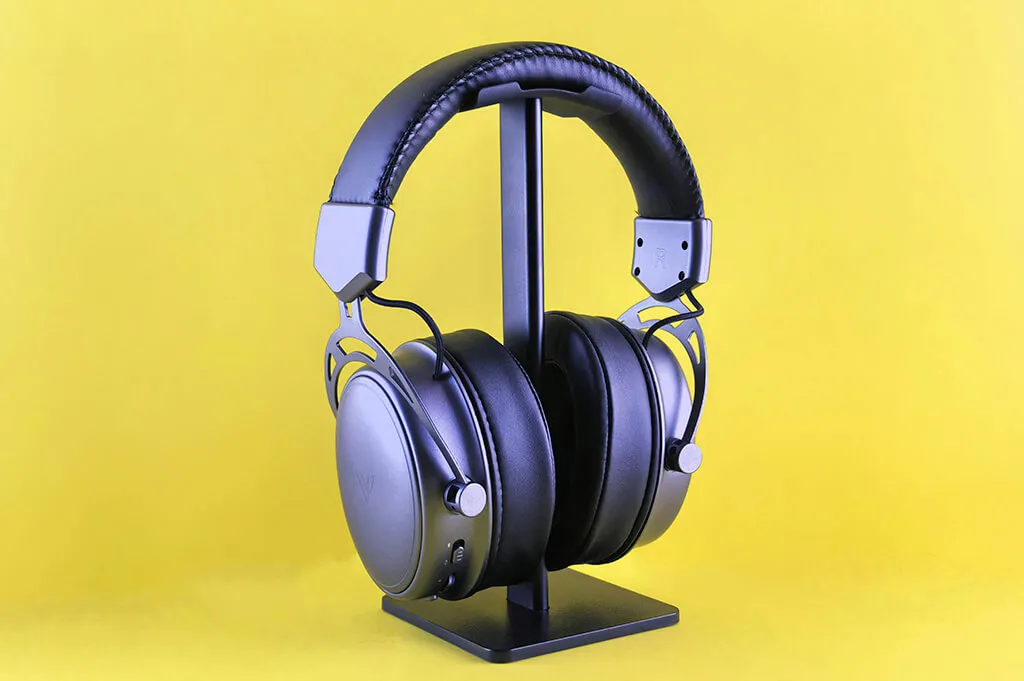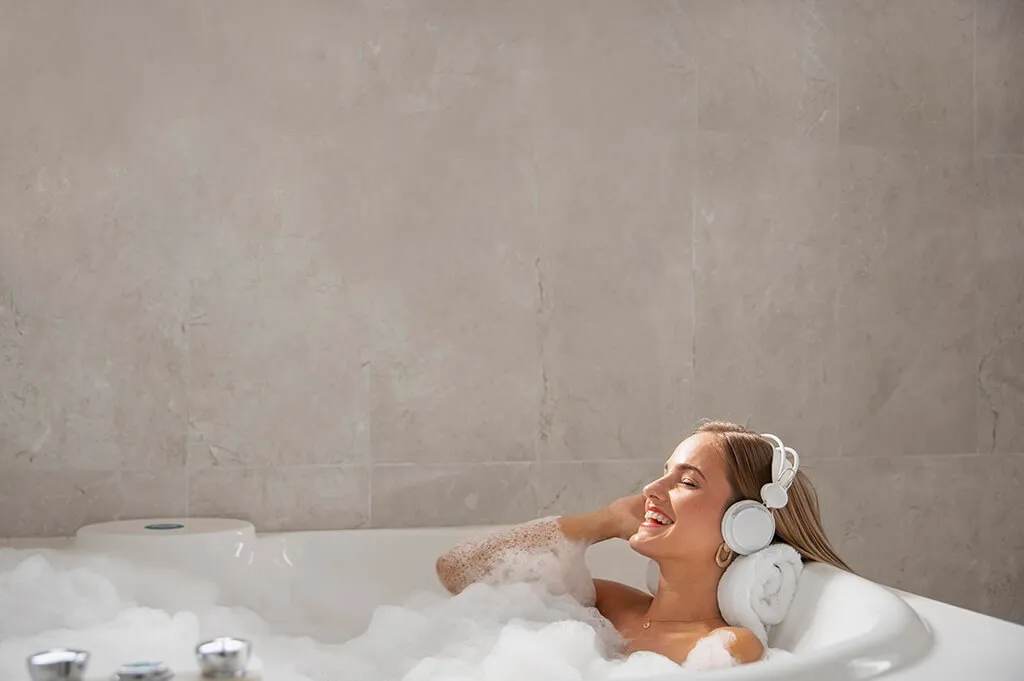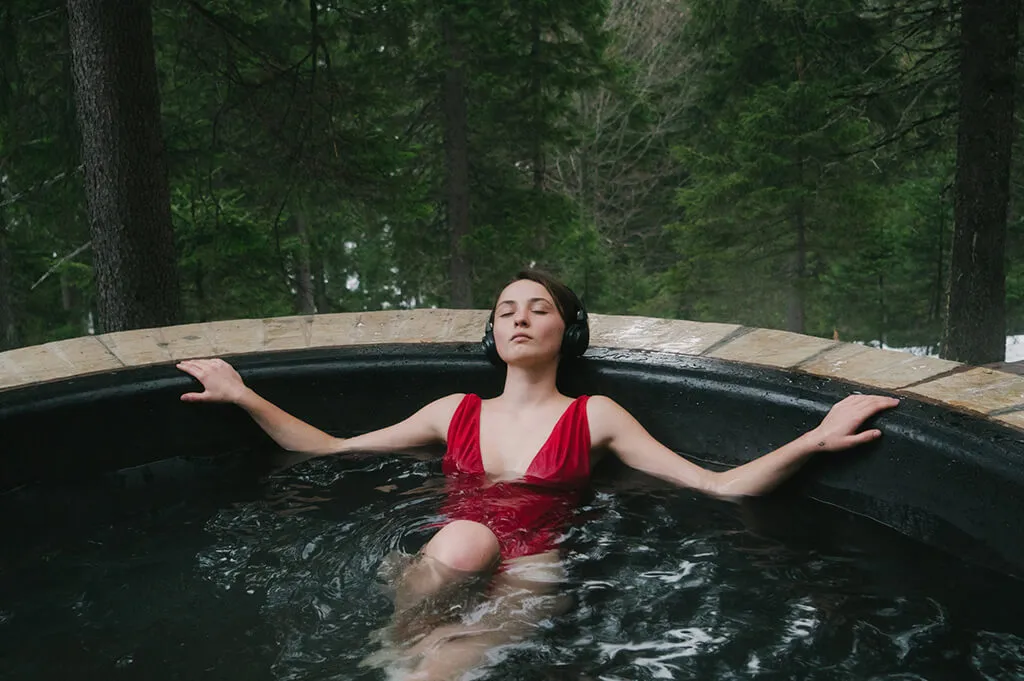
Have you ever felt the healing power of music while receiving a massage or relaxing in a warm jacuzzi?
That magical blend of sound and touch is not just pleasing; it has a real and profound impact on your body and mind.
At Sumangá Hotel Boutique, we understand how relaxing music for massage enhances each moment of self-care.
That’s why we pair therapeutic techniques with carefully chosen melodies to help you disconnect and restore your energy.
In this article, we invite you to explore the secrets of music therapy, its health benefits, and how this gentle art can uplift your mood, ease tension, and elevate your wellness, especially when combined with massage and hydrotherapy.
What Does Relaxing Music for Massage and Spa Actually Do?
Modern life is full of stress, and more people are searching for meaningful ways to disconnect.
That’s why hotels and spas offering jacuzzis, massages, and quiet spaces are increasingly popular.
But there’s one element that turns a good wellness session into a deeply healing one: music.
Music has become essential to making the most of a massage or spa treatment. It isn’t just a background feature; it’s a therapeutic tool.
And to understand its true impact in a spa or jacuzzi setting, we need to look more closely at music therapy.
What Is Music Therapy?
Music therapy is a professional practice that uses music and its core elements—rhythm, melody, and harmony—to support physical, mental, and emotional well-being.
While its roots are traced back to ancient times, science has only recently begun to validate its impact in clinical, psychological, and wellness environments.
In spa settings, relaxing music for massage becomes a powerful complement to physical touch.
It deepens the relaxation experience, helps the mind slow down, and creates a profound connection with yourself—or with your partner if you’re sharing the moment.
Active Music Therapy
This type of music therapy involves creating music actively, playing instruments, singing, or improvising.
It’s often used in personnel or group therapy to promote emotional expression or strengthen communication skills.
Receptive Music Therapy
More common in spa environments, receptive therapy focuses on listening. Guests relax while music is selected to guide them into states of rest, calm, or even sleep.
When you listen to relaxing music during a massage, you’re not doing anything—you’re simply receiving. And that’s the beauty of it.

What Are the Goals of Music Therapy?
Music therapy isn’t just for enjoyment. It has very clear therapeutic goals, such as:
- Reducing stress and anxiety
- Stimulating cognitive function (memory, focus)
- Improving sleep patterns
- Enhancing emotional balance
- Relieving physical pain and tension
- Deepening emotional connection and self-awareness
In the context of a spa treatment, relaxing music for massage helps accomplish all of these goals in subtle but lasting ways.
What Activities Can Be Done with Music Therapy?
Music therapy isn’t always passive. Its scope goes far beyond just listening. Some common ways it’s used include:
- Listening to ambient music during spa treatments, massages, or meditation
- Participating in rhythm workshops using basic instruments
- Improvising sounds to express buried emotions
- Using familiar melodies to boost memory in elderly patients
- Combining nature sounds (like water or birds) with soft instrumental music to induce deep relaxation
At Sumangá, this experience is woven into everything—from the background music in the jacuzzi to the curated playlists in our massage rooms.
Every melody is selected to help you let go of stress and reconnect with peace.

Why Is Music So Important for Health?
Multiple scientific studies confirm that music stimulates the nervous system, brain activity, and even heart function. By activating specific areas in the brain, music promotes physical and emotional healing.
Among its main effects:
- Stimulates dopamine and oxytocin—neurochemicals linked to pleasure, bonding, and love
- Reduces cortisol, the hormone associated with stress
- Supports neuroplasticity (the brain’s ability to adapt and regenerate)
- Strengthens the immune system by encouraging calm and happiness
When paired with spa rituals, relaxing music for massage becomes a true ally for your overall wellness. Sometimes, you don’t need to do anything—just lie back, breathe deeply, and listen.
How Does Music Affect the Brain and Help Us Relax?
Music activates various parts of the brain at once, such as the auditory cortex, limbic system (responsible for emotions), and hypothalamus (which regulates functions like sleep and temperature).
When we listen to soft melodies and slow tempos, the brain shifts into an alpha state, the same calm frequency experienced in meditation. This:
- Slows your heart rate
- Relaxes your muscles
- Encourages deep introspection
If you combine this state with a massage or a soothing soak in the jacuzzi, the effects are multiplied: a deep sense of calm, mental clarity, and physical restoration.
What Are the Health Benefits of Relaxing Music for Massage?
Let’s break it down. When soothing music and therapeutic touch work together, these are the most noticeable results:
Stress and Anxiety Relief
Music helps slow down racing thoughts and brings you back to the present moment. It creates a sense of safety and comfort, often within just 15–20 minutes.
Mood Improvement
Feeling emotionally drained? Music uplifts your mood, eases sadness, and reconnects you with joy and warmth, especially when paired with a nurturing environment.
Better Sleep
When played before bed or during an evening massage, relaxing music for massage helps regulate your sleep cycle. Guests at Sumangá often report sleeping more deeply after a spa session.
Better Circulation
As your body relaxes, your blood vessels dilate. Circulation improves, tissues oxygenate, and your body starts to repair itself, especially when massage and warm water are part of the equation.
Pain and Muscle Relief
This combination—music, warm water, and massage—reduces the perception of pain and allows your muscles to release stored tension. Even chronic discomfort can become manageable.

What Type of Music Is Ideal for a Massage or Jacuzzi Experience?
In wellness settings, music isn’t an afterthought; it’s part of the therapy. Selecting the right soundscape is essential to shaping the atmosphere.
Some of the most effective types of relaxing music for massage include:
- Ambient instrumental soundtracks
- Recordings of natural elements (rain, ocean waves, birdsong)
- Tibetan singing bowls or chimes
- Melodies composed in minor keys to evoke calm and inner silence
The key is slow, steady rhythms with smooth transitions and harmonic frequencies. This invites your entire nervous system to slow down and settle.
What’s the Most Relaxing Song in the World?
British neuroscientists identified “Weightless” by Marconi Union as the most relaxing song ever created. With its slow rhythm, immersive harmonies, and steady pacing, it produces a near-hypnotic effect.
In fact, it’s so calming that listeners are warned not to play it while driving.
At Sumangá, we’ve taken inspiration from this and other melodies to design playlists that help you unplug from the outside world—and reconnect with what really matters.
Choosing the right relaxing music for massage is more than just setting the mood. It’s a wellness tool—one that enhances the effects of massage, nurtures emotional balance, and helps you fully let go.
When you add a natural setting, warm water, and caring hands into the mix, you get something far beyond relaxation: you get a healing experience.
At Sumangá Hotel Boutique, we invite you to live it for yourself. Your body, your mind, and your spirit will thank you.



